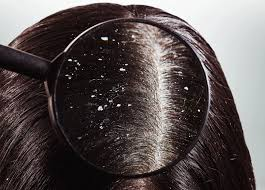Why You Shouldn’t Scratch Your Scalp When You Have Dandruff
Introduction:
Dandruff is a common condition that affects many people around the world. It is characterized by the flaking of dead skin cells from the scalp, and it can be a source of discomfort and embarrassment for those who suffer from it.
One of the main symptoms of dandruff is an itchy scalp, which can lead to scratching. However, scratching can actually make the condition worse, and it is important to understand why.
In this blog, we will explore the reasons why you shouldn’t scratch your scalp when you have dandruff and provide some tips on how to manage the condition effectively and how you should get the best dandruff treatment in Bangalore.
Why Scratching Your Scalp Is Bad:
-
It Can Cause Skin Damage: Scratching your scalp when you have dandruff can cause skin damage, leading to further irritation and inflammation. This can make the condition worse and may even lead to infections. When you scratch your scalp, you are essentially creating small wounds on your scalp, which can become infected and cause further complications.
-
It Can Spread the Condition: Scratching your scalp can cause the flakes to spread, making the condition worse. It can also lead to the development of new areas of dandruff on the scalp. When you scratch your scalp, you are essentially removing the top layer of skin, which can lead to the spread of dandruff to other parts of your scalp.
-
It Can Make Your Hair Look Greasy: Scratching your scalp can stimulate the oil glands, leading to an increase in sebum production. This can make your hair look greasy and dirty. When you scratch your scalp, you are essentially stimulating the oil glands on your scalp, which can make your hair look oily and greasy.
Tips to Manage Dandruff without Scratching:
Use a Dandruff Shampoo
The first step in managing dandruff is to use good quality dandruff shampoo. Look for a shampoo that contains ingredients such as salicylic acid, zinc pyrithione, or ketoconazole, which can help to reduce flaking and itching. These ingredients are effective in treating dandruff because they help to reduce inflammation and irritation on the scalp.
Apply an Oil Treatment
Applying an oil treatment to your scalp can help to reduce itching and irritation. Try using coconut oil, tea tree oil, or neem oil, which have anti-inflammatory and anti-fungal properties. These oils are effective in treating dandruff because they help to moisturize the scalp and reduce inflammation.
Practice Good Hair Care
It is important to practice good hair care to reduce the risk of dandruff. Avoid using harsh chemicals on your hair, and try not to wash your hair too often, as this can strip the scalp of its natural oils. When you wash your hair too often, you are essentially removing the natural oils from your scalp, which can lead to dryness and irritation.
Manage Stress
Stress can worsen dandruff, so it is important to manage stress levels. Try practicing relaxation techniques such as yoga or meditation, or take up a hobby to help you relax. Stress can weaken the immune system and lead to inflammation, which can worsen dandruff symptoms.
Use a Dandruff Brush
A dandruff brush is a tool that is specifically designed to help remove dandruff flakes from the scalp. This can be an effective way to manage dandruff without scratching the scalp.
Moisturize Your Scalp and Hair
A dry scalp can lead to dandruff, so keeping your scalp and hair moisturized is important for preventing dandruff. Use a good quality conditioner after shampooing to keep your hair and scalp moisturized. You can also use a natural oil, such as coconut oil or jojoba oil, to moisturize your scalp. Apply the oil to your scalp and hair, massage it in, and leave it in for a few hours before washing it out.
Use Antifungal Products
If your dandruff is caused by a fungal infection, you may need to use antifungal products to get rid of it. Look for shampoos and conditioners that contain ingredients like ketoconazole, selenium sulfide, or pyrithione zinc. These ingredients can help to kill the fungus and clear up your dandruff.
Visit a Dandruff Specialist in Bangalore
If you have severe dandruff that doesn’t respond to over-the-counter treatments, it may be time to see a dandruff specialist. A trichologist can diagnose the underlying cause of your dandruff and recommend the best course of treatment for your specific needs. They can also provide advice on how to prevent dandruff in the future.
Conclusion
In conclusion, scratching your scalp when you have dandruff can actually make the problem worse. It can lead to more flakes, more itching, and even infection. Instead of scratching, try using a dandruff shampoo, washing your hair regularly, and avoiding harsh hair products. If your dandruff doesn’t improve, see a dandruff specialist for a diagnosis and treatment plan. With the right care and attention, you can get rid of dandruff and enjoy healthy, flake-free hair.








